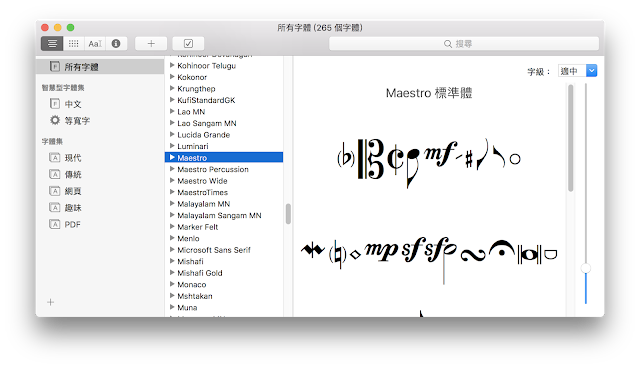音樂班模擬試卷計劃十年回顧與暫停公告
每年度公告免費音樂班升學模擬試卷的計劃剛好執行10年。在這10年的過程,竟然也歷經了題目從過去比較制式的題型、到新制素養的改革。從明年起(115學年度),我決定暫停這個計劃。
其實暫停計劃不是沒時間出題、懶得出題,或是對出題沒有興趣,而是我看到現在學生的學習資源已經相當豐富,加上各種制度的調整,確實不再有出模擬題的必要。
主要原因有幾個。10年前,AI尚未普及,學生沒有機會「餵」AI歷屆試題,現在學生把歷屆丟給AI後自動請它分析題目、並仿真出題,人工智慧做得越來越優秀。又或者,早期比較沒有像是「臺師大與教育部師藝司音樂素養導向計畫小組」這種組織,音樂素養小組現在每年定期舉辦不同工作坊,開設各式課程,邀請大專院校音樂系教授帶領國高中一線老師一同討論課程設計與出題方向,甚至出了不少有趣的題庫供大家使用,有了這些豐富的模擬題(或是範例題),跟早年「出題方向」還不明確的情況相比,現在的資源已經相當充足,模擬題的稀缺性早就不復存在。
近年,越來越多國家(英國、德國)音樂院的入學考試題目(樂理、聽力)更容易取得,這些題目的設計都與現在新型素養考題很相像,有了國外資源(加上AI一鍵翻譯),學生能接觸到的題目數量呈現爆炸式成長,甚至有可能根本做不完的狀況。還有,近年坊間舉辦的模擬考數量也大幅度成長,從三人模考到百人以上的大規模考試隨處可見,這些主辦單位甚至提供考後解題服務,即便是普通班學生也完全不用擔心「沒有考過試」就上場的窘境。
最後,考試管道的多元開放,越來越多學校將三科理論成績比例降至5%以內、或甚至不採計,花大把時間投入免費試卷的出題似乎不再那麼必要。這並非意味著學校不重視理論測驗,而是採納成績、採計分數的方式大幅改變,各種入學標準更多元,聯招筆試的佔比實在過低,也讓我重新思考年年推出新題的必要性。
評估過上述這些「資源」大幅成長以及各種情況改變後,學生有太多管道可以取得練習資源,不像以前我擔心很多普通班學生沒辦法參加「模擬考」、而需要我出免費試卷的狀況,現在的情況已經不可同日而語。
也因此,我覺得這個計劃階段性的任務剛好以10年收尾非常適合。也很感謝這10年來曾經協助過校稿的老師及學生們,我們都在音樂班考試制度變革中成長不少!希望學生日後能持續善用我上面說的資源,也同時祝福未來考生金榜題名。
天彥,2025年10月於德國漢堡
-English Version-
After ten years of providing complimentary mock examination papers for music programme entrance assessments, I have decided to bring this initiative to a close from the 2026 academic year. This decade has witnessed remarkable changes in Taiwan's music education assessment system, from traditional, formulaic testing to today's competency-based evaluation approach.
This decision does not reflect any lack of time or enthusiasm for creating examination materials. Instead, it acknowledges that the educational landscape has transformed fundamentally. Students now have access to abundant preparation resources, and changes to admission criteria have reduced the critical need for independently produced mock papers.
The contrast with ten years ago is striking. When this project began, artificial intelligence was beyond the reach of most students. Today, students routinely input past papers into AI systems that analyse patterns and generate sophisticated practice questions. The institutional framework has also matured considerably. The Ministry of Education's Music Literacy Working Group now coordinates regular workshops where university lecturers and secondary school teachers collaborate to develop comprehensive question banks and establish assessment guidelines—infrastructure that simply did not exist when we started.
International resources have further enriched the preparation landscape. Entrance examinations from British and German conservatoires are now readily available online, offering question formats that align well with Taiwan's competency-based approach. Combined with instant translation capabilities, these materials provide students with more practice opportunities than they could reasonably complete.
The commercial sector has expanded dramatically as well. Mock examinations now range from small practice sessions to large-scale simulations with hundreds of participants, complete with detailed marking schemes and solution guides. This ensures that all students, regardless of their background, can experience examination conditions before their actual assessments.
Perhaps most significantly, admission policies themselves have shifted. Many music programmes have reduced theoretical examination weightings to minimal percentages, with some removing these components entirely. This change reflects not a devaluation of music theory, but rather a broader recognition of diverse talents and assessment methods. Written examinations now play a substantially diminished role in determining admission outcomes.
Given these developments, the original mission—ensuring equitable access to quality practice materials for all students, particularly those without access to expensive preparation courses—has been accomplished through other means. The educational system has evolved to address the gaps this project once filled.
As we reach this natural ten-year conclusion, I wish to express my sincere gratitude to the many teachers and students who contributed through their feedback, proofreading assistance, and ongoing support. Together, we have navigated significant educational reform in Taiwan's music education sector. I encourage future students to make full use of the extensive resources now available and wish them every success in their musical pursuits.
Tian-Yan
Hamburg, Germany
October 2025



留言
張貼留言